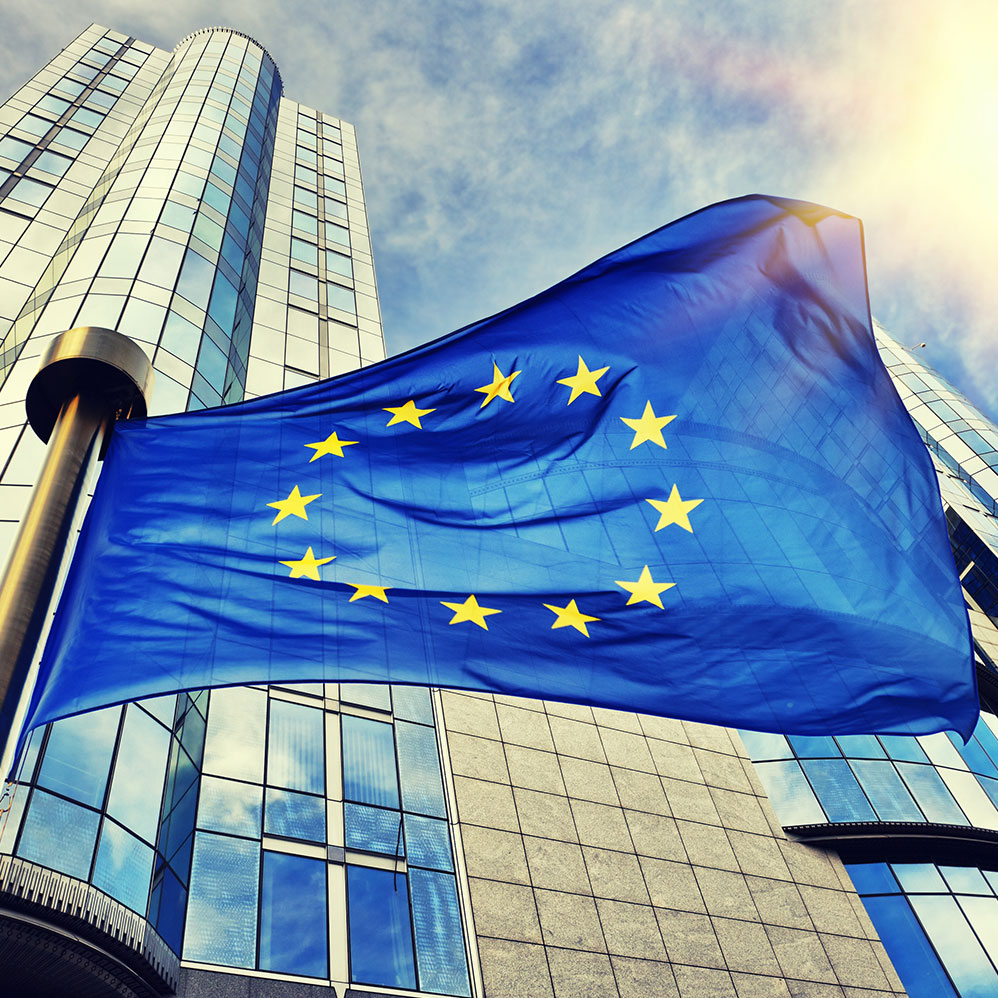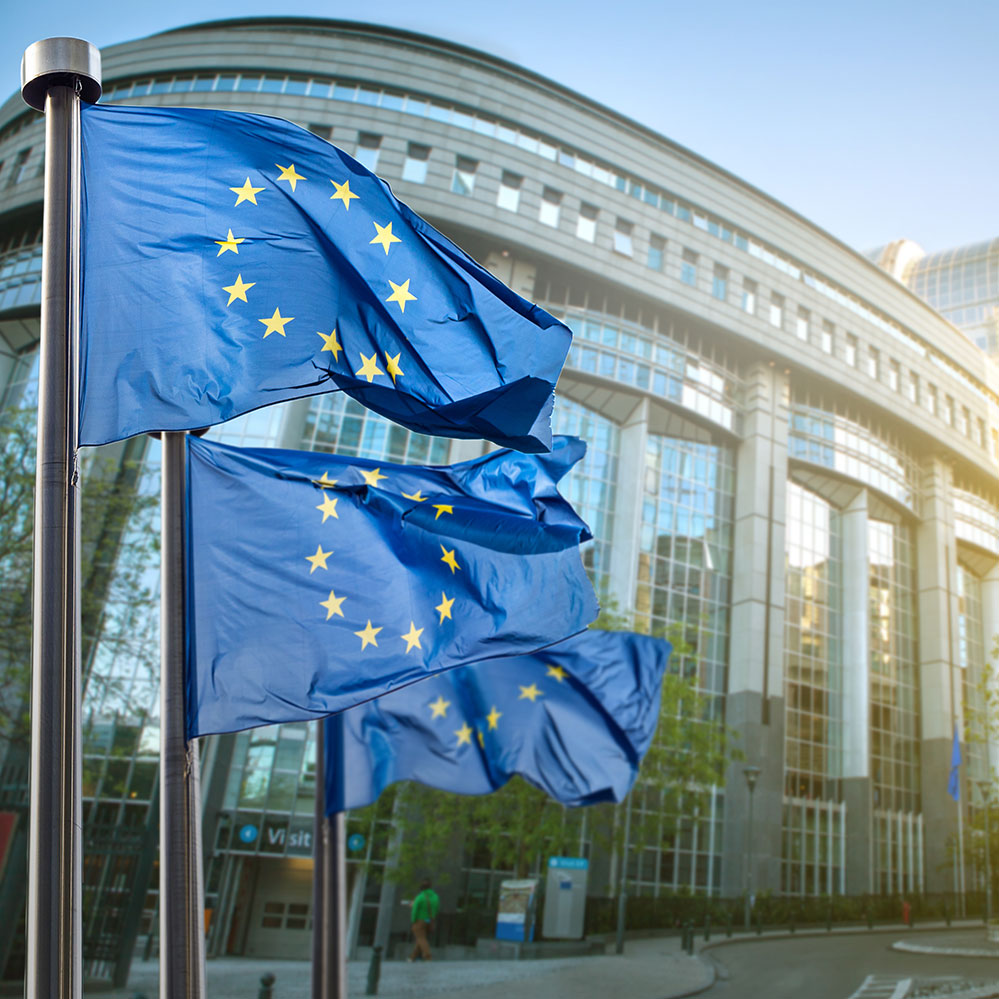
Your citizen’s rights
-

A bit of history
Does 1 November 1993 ring a bell? On that day, the citizens of all the Member States achieved a new legal status as 'citizens of the European Union'. The (economic) 'European Community' was also replaced by the (political) 'European Union'. This was — and remains — a worldwide and historic first; no other citizen across the globe enjoys transnational rights, enabling them to participate actively in the shaping of legislation across nation states.
Since then, the formal rights to make your voice heard have been systematically strengthened, most powerfully by the introduction of the European Citizens' Initiative (ECI) in 2012. This tool was further updated in 2020, creating even better opportunities to make your voice heard.
-

Not yet an EU citizen?
There is only one way you can become a citizen of the European Union. You need to be or become an eligible citizen of one of the Member States. In other words, there is no other way to obtain this status without being a citizen of one of the Member States. EU citizenship complements local, regional and national citizenship – but never replaces it.
In an increasing number of Member States, you are eligible to support a citizens' initiative (especially an ECI) and to participate in elections when you are 16 years old, whereas you have to wait until you are 17 or 18 years old in other countries.
Find out more! More about minimum age to vote in elections and/or to support an ECI per country: europa.eu/citizens-initiative/data-requirements_en
EU citizens have four main political rights and freedoms:
- to move, reside and work freely within the EU territory;
- to receive protection from the diplomatic authorities of any Member State when outside the EU;
- to vote and stand for election at local and EU level in any Member State;
- to participate in the EU legislative process, for example by petitioning the European Parliament; and organising/supporting a European Citizens’ Initiative (ECI).

How to be an active citizen?
-
Get informed!
Before you act, enquire about your rights and duties
You have the right to know exactly what is going on in the European Union, so you can ask for and receive information about basically everything the EU is doing. You also have the legal right of 'access to documents' of all the EU institutions, a right that is enshrined in the Charter of Fundamental Rights of the European Union (Article 42) and the Treaty on the Functioning of the European Union (Article 15).
The Europe Direct service will answer your questions about the EU – in your own language. You should get an initial answer within three working days. The service includes free postal delivery of (certain) EU publications. You can also call Europe Direct freephone from anywhere in the EU: 00 800 6 7 8 9 10 11 (weekdays 09:00 – 18:00 CET).
Find out more! Read more about other available tools in the Participation toolkit section.
-
Be consulted!
You have many channels enabling you to comment on EU policies and proposals
As the European Union has a major impact on your daily life, it is important to know that the public decision-making process in the EU is legally required to be open and responsive. For this reason, the EU institutions are obliged to 'maintain an open, transparent and regular dialogue' Article 11(2) of the of the Treaty on European Union (TEU), also known as the Lisbon Treaty and to 'carry out broad consultations with parties concerned in order to ensure that the Union's actions are coherent and transparent' (Article 11(3) TEU).
The 'Have your say' service is an official 'access point' to ongoing consultations and public discussions related to European policy-making processes. When you register, you can sign up for email notifications and even be invited to participate in formal consultation processes.

-
Participate!
You can join a political party or organise your own citizens’ initiative
The European Union is a modern representative democracy, in which citizens co-govern both indirectly (via the institutions) and directly (via participatory tools). The fundamental charters, treaties and laws of the EU comply with Article 21 of the Universal Charter of Human Rights, which stipulates that 'everyone has the right to take part in the government of his country directly', and, for the first time in world history, bring this practice to the transnational level.
In other words: you have every right and are most welcome to participate actively in the EU policy-making process, for example by joining a political party represented in the European Parliament, by petitioning the EP or taking part in European Citizens' Panel. The most powerful tool for participatory democracy in the EU is the European Citizens’ Initiative, which allows you to set the agenda of the European Union!
Find out more! Read more about other available tools in the Participation toolkit section.
Which level of action?
Life is not written in stone! It is up to you, your friends and all of us to make our voices heard – and to make your town, province, country, Europe and the world a better place.
-
My place: municipal level
Your hometown is probably the most important place when it comes to active citizenship and participatory democracy.
Even though your municipality may be the lowest level of state authority, it is here that important issues such as waste management, local infrastructure and sometimes even primary education and social welfare services are decided on. What's more, the local level is closely intertwined with legislative levels at the national and European level - and plays a key role in implementing various rules and laws.
There are almost 100 000 local democracies across the European Union, many of them responsible for a huge share of overall tax collection and applying various kinds of participatory rights to their own citizens, including indirect (via political parties and local parliaments) and direct (initiatives and referendums) channels.
Find out more! Curious to know more about what, how and when you can best make an impact? Contact an information officer in your local administration. -
My region: provincial level
Many provinces and regions enjoy far-reaching powers and even those which do not, have the advantage of being your closest administrative contact point.
In between your municipality and your country, you have (in at least 25 Member States) one or more levels of regional government structures. Currently, there are about 1500 such regional democracies across the EU. In some federated Member States the provinces enjoy considerable sovereignty, including constitutions of their own, far-reaching legislative powers and comprehensive tax incomes while in other EU Member States, provinces/regions mainly fulfil (unelected) administrative roles.
Depending on the status of your province/region, you may enjoy more or less extensive rights of political participation including indirect (via political parties and local parliaments) and direct (initiatives and referendums) channels.
Find out more! The European Committee of the Regions is the European Union's Assembly of Regional and Local Representatives -
My country: national level
The Member States are the single most important level of governance within the European Union in terms of political and legal powers and control of public funds.
For this reason, your citizenship in one (or sometimes several) Member State(s) is crucial to your ability to make your voice heard and to have an impact on the public decision-making process.
The availability of participatory political rights at the national level varies considerably between the Member States. While all countries have electoral rights, about two thirds of the countries also allow citizens to make their own proposals through petitions and initiatives and to have a say on substantive issues through the referendum process.
Find out more! For an overview and details on participatory opportunities at the national level, visit the Direct Democracy Navigator or check with the information services of your national parliament. -
My Europe: transnational level
The European level offers a multitude of ways to act: from voting to representing.
The European Union is the world's first transnational democracy. As an EU citizen, you enjoy a wide range of opportunities to make your voice heard, by voting and/or standing as a candidate for the European Parliament or you can have a more direct say by sending in a petition (directed to the Parliament) or launching a European Citizens' Initiative (directed to the Commission). And that's not all!
As an EU citizen, you can run for the European Parliament, submit a complaint to the European Ombudsman, get assistance with your problem, make your voice heard publicly, petition the European Parliament or support a European Citizens’ Initiative.
